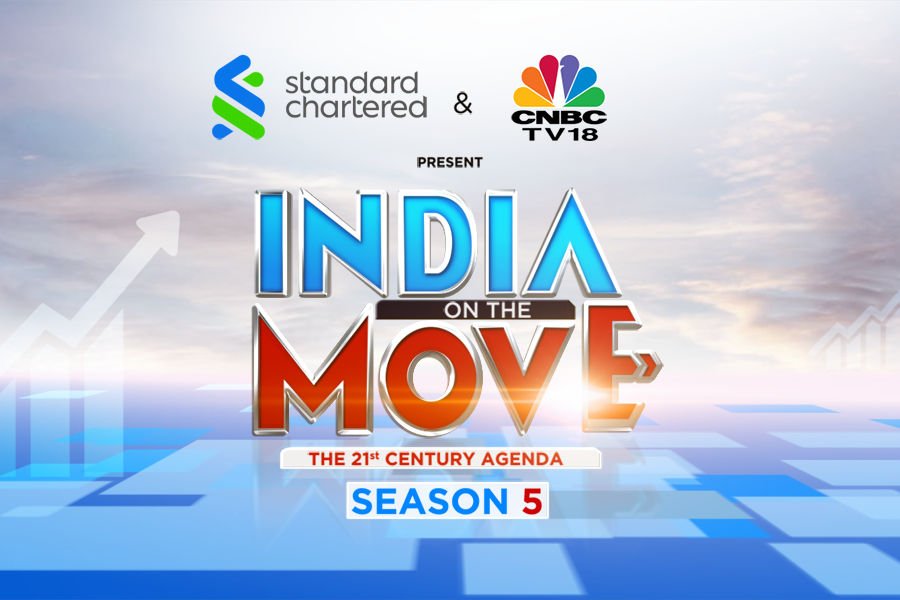Supply Chain Financing - a boon for the MSME sector
This is a special feature as part of the India on the Move Series (Season 5), an initiative by Standard Chartered Bank and CNBC-TV18



Supply change financing is scaling new paradigms with digitisation enabling its growth and adoption. Technology-based solutions have helped lower costs, optimise working capital needs, especially kept the wheels of business moving for small and medium enterprises in a COVID-19 disrupted world. Paromita Chatterjee, Special Correspondent, CNBC-TV18 converses on the topic of supply chain financing with Industry voices on a panel comprising Gaurav Bhatnagar, MD & Head, Trade & Working Capital, India & South Asia, Standard Chartered Bank, Arun Poojari, Co-founder & CEO, Cashinvoice and Neeraj Bansal, COO - India Global, Leader - Supply Chain Realignment, KPMG India.
Talking on the changing role of supply chain finance, Neeraj commented on the massive transformation in this space caused by the Pandemic and geopolitical tensions that have influenced diverse product categories. He added, “Companies want to drive towards reassuring regionalization, diversification of their capacities and reduce geographical dependence." He also mentioned about how digitization has brought in transparency in business transactions aiding the MSMEs, given financial health information is not so easily accessible to them.
In the context of supply chain finance, Gaurav further elucidated the workings of this medium with an example. He spoke about how companies are looking at expanding their supplier base to avoid disruption in their work-flow by ensuring vendors are well financed and their working capital requirements are addressed in a timely manner. Speaking about ground realities from a fintech company’s perspective, Arun spoke about the level of complexities in the web of supply chain financing and how the smallest player in the chain, sources financing, adding that it may not always be that simplistic. Stressing on the role of technology, Arun said that there have been legislations enacted by the Government to protect the interest of this community, furthermore, digitisation has made data acquisition detailed analysis possible to assess the credit worthiness of the involved parties and last mile connectivity making transactions seamless and secure.
Neeraj touched upon the challenges of penetration and digital adoption which are a concern among MSME suppliers, though a host of operating models are meeting the dynamic needs of the supply chain business. Rolling out of the GST, enabling e-invoices, the introduction of the e-way bill, easy availability of financial data, have transformed the market in favour of supply chain financing. He added, “MSME is currently a fractional segment which is getting addressed, by market estimates around 60000 crore worth of invoices are getting financed, which is equivalent to almost 10% of the overall addressable market".
Gaurav stressed upon tech enabling tools that are addressing the pre- and post-shipment requirements of small vendors. Additionally, big data analysis is offering risk aversion means to banks and fintech companies, a visible departure from the traditional financing scenario. Another game changer according to him is blockchain, which is lending visibility to concerned stakeholders in the supply chain transactions. He said, “With this new technology, standalone financial analysis is a thing of past and banks will be able to leverage the strength of supply chain and take that call".
Arun talked about there being no dearth of demand for financing, he quoted, “From a supply perspective, there is some openness, piloting and willingness to take an element of risk required, that would possibly set a good example and be a good turnaround story for the Indian MSMEs". He also explained how it will take time to bring the lower tier suppliers into the limelight and help connect them to the financiers. As a company, Cashinvoice is building a repertoire of case studies that will encourage more banking partners, MNCs and other financial institutions to come into the fold to offer financial services.
The pages slugged ‘Brand Connect’ are equivalent to advertisements and are not written and produced by Forbes India journalists.
First Published: Dec 10, 2021, 08:46
Subscribe Now